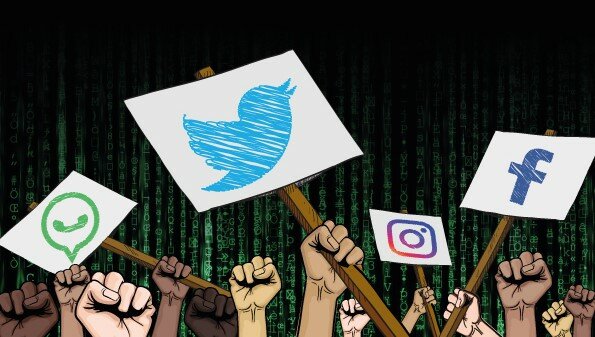Social media and Politics
By Ambra Sargu
When it comes to social media, the world all of a sudden becomes much bigger. You can follow pretty much everybody from anywhere in the world with just one click. Platforms like Twitter and Facebook allow users from all around the world to follow politicians ideas from the tip of their fingers. Digital technologies make it possible for average citizens to become more involved in political decisions.
Equipped with social media, citizens no longer have to be passive consumers of political party propaganda government’s pin or mass media news but are instead enabled to challenges discourses which share alternative perspectives and publish their own opinions. Platforms such as Facebook constitute digital network architecture for people to connect and create overlapping social networks. Citizens will be exposed to a wide range of messages they do not actively seek out. What they are exposed to depends to a great interest of their interest and behaviour of the ones they are connected to. For example, who they choose to be friends with on Facebook may already be consistent with their environment or their ideology or may challenge what they already agree on.
Social media is a technology and as we know, technologies have their good sides and dark sides. It all depends on the users and trying to understand what are the users intentions, motivations and intentions. It is very important today what the users want and the forces that shaped their motivations. The second biggest thing that changes with social media was effectively designed as a tool for the empowerment of the user and giving them broadcast power and once the individual has broadcasted power, it tends to change politics and that I think is what we have seen although it is often said that social media can bring down systems but it has not got any real capability to create something new to replace them which is what we have seen with the Arab Spring. The aftermath in Arab Spring in some ways could have never happen without Facebook and Twitter. The Arab Spring were not on social media but the social media amplified it and empowered people which had a huge effect, but it was not the main force behind the Arab Spring.
Social media gives people a voice and the ability to broadcast views, but it also lowers the cost of coordinating collective actions of raising money, of organising, of energising protestors and all that matter. Government are also becoming media savvy and so we see governments in Iran, Russia and Venezuela are very good at managing social media and in fact are using social media to identify who are the leaders of the process. Social media can be liberation to technology but also repression to technology.


